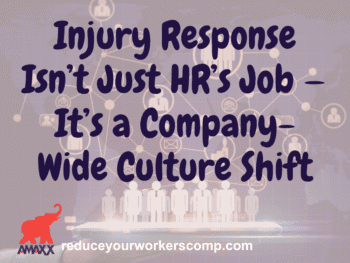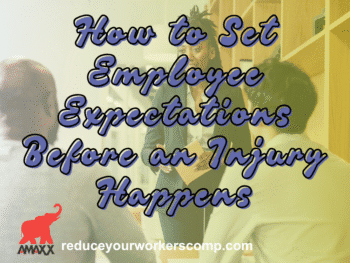Employers Are Most Important Piece in Communication
Many employers limit their participation in their own work comp claims hoping that the carrier will do nearly all of the work. It seems, to many employers, that it goes with the premium. However, as any trial attorney appreciates, whoever volunteers to become the communications center will control the progress of the claim.
Communications in comp claims are quite complex. It is wrongly imagined that the parties (employer and worker) are not allowed to communicate with each other during a claim. This is entirely false and the law requires that each MUST stay in touch with the other. In addition, one or both must often communicate with the carrier, the Work Comp Board, medical providers, health insurance and group disability carriers as well as a variety of agencies.
The flow of data among all these will quickly bring a claim to a halt unless properly coordinated. Delay costs money in comp and it’s only the employer who pays.
Take Control of Costs Through Communication
The cheapest and fastest way an employer can prevent unnecessary delay and confusion is to make sure that all other parties are copied on any piece of information the employer receives, from whatever source. Group medical plans are especially concerned that they may be paying unintentionally for a comp claim. Employers will often receive requests for information during a claim. Resist the temptation to refer the requests to someone else or stonewall the situation. By coordinating the requests with other parties you will maintain control and limit misunderstandings, a leading cause of soaring expense and lost time.
Right to Confidentiality is Waived
It is a misconception that medical information is automatically protected by a “right to privacy”. Whenever a claim for disability is made the “right to confidentiality” is waived. (“Right to privacy” does not apply to medical records, although the term is often misapplied to what is “right to confidentiality”)
Every year seems to bring new players into the field of employee benefits with ever more exchanges required. Stonewalling will work, for a while, but the bill to be paid in the end will be much higher.
Author: Attorney Theodore Ronca is a practicing lawyer from Aquebogue, NY. He is a frequent writer and speaker, and has represented employers in the areas of workers’ compensation, Social Security disability, employee disability plans and subrogation for over 30 years. Attorney Ronca can be reached at 631-722-2100. medsearch7@optonline.net
Editor Michael B. Stack, CPA, Director of Operations, Amaxx Risk Solutions, Inc. is an expert in employer communication systems and part of the Amaxx team helping companies reduce their workers compensation costs by 20% to 50%. He is a writer, speaker, and website publisher. www.reduceyourworkerscomp.com. Contact: mstack@reduceyourworkerscomp.com.
WORKERS COMP MANAGEMENT MANUAL: www.WCManual.com
Do not use this information without independent verification. All state laws vary. You should consult with your insurance broker or agent about workers comp issues.
©2012 Amaxx Risk Solutions, Inc. All rights reserved under International Copyright Law. If you would like permission to reprint this material, contact us at: Info@ReduceYourWorkersComp.com.



























